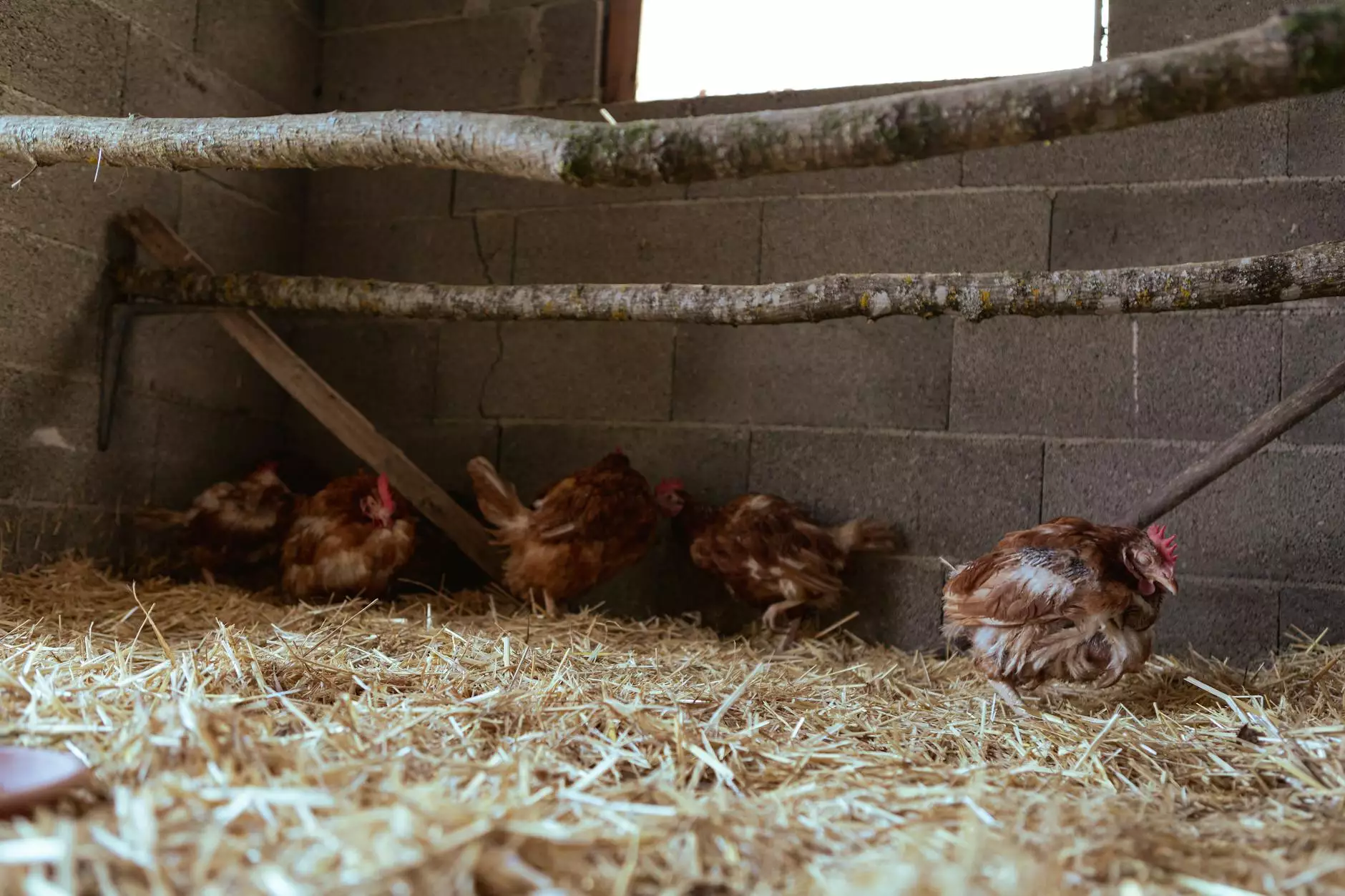The Rise of Frozen Chicken Producers: A Look into Brazilian Poultry Exporters

In the ever-evolving landscape of global food production, frozen chicken producers have emerged as pivotal players. With an increasing demand for high-quality, affordable chicken meat across the globe, businesses in this sector have worked tirelessly to optimize their operations, ensuring they meet international standards. Among these sectors, Brazilian poultry exporters have made significant strides, establishing themselves as leaders in the industry.
Understanding the Frozen Chicken Market
The market for frozen chicken is rapidly expanding, fueled by factors such as changing consumer preferences, urbanization, and a growing middle class in various regions around the world. The ability to preserve the quality and freshness of chicken through freezing has made it a preferred choice for many consumers. Here’s why:
- Extended Shelf Life: Freezing chicken helps maintain its quality for an extended period, making it convenient for suppliers and consumers alike.
- Economic Viability: The economies of scale in bulk purchasing make frozen chicken an attractive option for restaurants and retailers.
- Versatile Usage: Frozen chicken can be used in a variety of dishes, which appeals to a broad audience.
Why Choose Brazilian Poultry Exporters?
Brazil is renowned for its poultry industry, particularly in the realm of frozen chicken products. The country's unique combination of factors makes it a desirable source for poultry exporters.
1. Superior Quality Standards
Brazilian poultry producers adhere to some of the most stringent quality control standards in the world. Their commitment to quality is reflected in:
- Health Regulations: Brazil’s poultry industry is regulated by both national agencies and international standards, ensuring that all products are safe for consumption.
- Animal Welfare Practices: Many producers follow strict animal welfare guidelines, further enhancing the quality of the meat.
- Innovative Processing Techniques: The utilization of cutting-edge technology in processing and packaging allows for a superior product.
2. Cost Competitiveness
Brazil is positioned to offer some of the most competitive prices in the market due to factors such as:
- Large Production Capacity: With vast agricultural land, Brazil boasts large-scale poultry farms that can meet high demand.
- Efficient Supply Chain: An efficient logistical framework ensures a smooth supply chain that minimizes costs.
- Favorable Exchange Rates: For many importers, the Brazilian Real can provide a cost advantage over other countries.
3. Versatile Range of Products
Brazillian frozen chicken producers offer a diverse range of products that cater to different market segments. This includes:
- Whole Frozen Chickens: Ideal for retailers and wholesalers looking to sell to consumers.
- Chicken Parts: Including breasts, thighs, wings, and drumsticks, these meet the specific needs of restaurants and food services.
- Value-Added Products: Such as marinated or pre-cooked options that save time in meal preparation.
The Impact of Frozen Chicken on Global Food Security
Frozen chicken producers play a crucial role in global food security. The availability of easily accessible protein sources is vital for nutrition globally. Here’s how frozen chicken contributes:
1. Accessibility
In many regions, especially in developing countries, the availability of affordable protein is a necessity. Frozen chicken, which can be transported, stored, and distributed efficiently, helps ensure that protein-rich food is available to a larger population.
2. Nutritional Value
Frozen chicken retains much of its nutritional value. By freezing chicken shortly after processing, producers preserve essential nutrients, ensuring that consumers receive a wholesome meal.
3. Economic Development
The poultry industry, particularly in Brazil, stimulates job creation. From farming to processing and exporting, the sector supports thousands of jobs, contributing to the national economy and uplifting rural communities.
Challenges Facing Frozen Chicken Producers
While the future looks bright for frozen chicken producers, there are notable challenges that the industry must navigate.
1. Environmental Concerns
As with any agricultural sector, environmental sustainability is a pressing concern. Products derived from poultry can lead to challenges such as:
- Deforestation: Increased agricultural land for poultry farming can strain local ecosystems.
- Carbon Footprint: The transportation of chicken products worldwide contributes to greenhouse gas emissions.
2. Market Competition
With an increase in global demand, competition among countries, particularly from major poultry exporters like the United States and the European Union, is intensifying.
3. Adapting to Consumer Preferences
Consumer preferences are shifting towards more sustainable and ethically sourced food options. There is growing demand for organic and free-range chicken, prompting frozen chicken producers to adapt their practices, which can involve additional costs.
Future Trends in the Frozen Chicken Industry
As the market progresses, several trends are likely to shape the future of frozen chicken producers:
1. Technological Advancements
From better freezing techniques to improved transportation methods, technology will continue to drive efficiency in the industry. Producers are investing in:
- Smart Refrigeration Systems: These ensure optimal storage conditions, preserving meat quality.
- Blockchain for Traceability: Increasing transparency in the supply chain can improve consumer confidence.
2. Health-Conscious Products
As consumers become more health-conscious, there is an increasing demand for lower-fat options and fortified chicken products. Producers are likely to respond by:
- Enhancing Nutritional Profiles: Offering chicken that is enriched with vitamins and nutrients.
- Developing Health-Focused Brands: Targeting specific dietary needs such as low sodium or gluten-free.
3. Sustainability Initiatives
To address environmental concerns, frozen chicken producers are likely to implement sustainable practices within their operations. This includes:
- Reduced Water Usage: Implementing water-efficient farming techniques.
- Waste Management Strategies: Finding ways to recycle and reduce waste in the production process.
- Collaborative Efforts: Working with governments and NGOs to promote sustainable agriculture.
Conclusion: Frozen Chicken Producers and the Global Marketplace
In conclusion, the role of frozen chicken producers in the global market cannot be understated. With Brazilian poultry exporters leading the charge, the industry is poised for continued growth, propelled by quality, efficiency, and innovation. While challenges such as sustainability and market competition are prevalent, the future trends hint at a resilient industry capable of adapting to changing consumer demands. Whether you are a consumer seeking high-quality poultry products or a business looking to partner with top exporters, the frozen chicken market presents a wealth of opportunities.
For more insights and high-quality poultry products, visit frozenchickengroup.com. Explore how we can meet your needs in the frozen chicken sector today!









